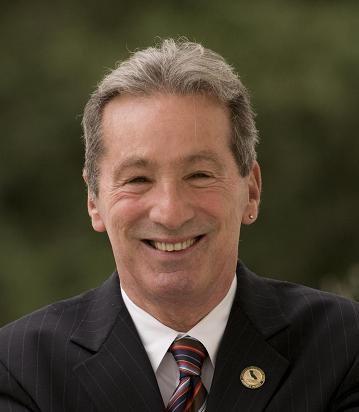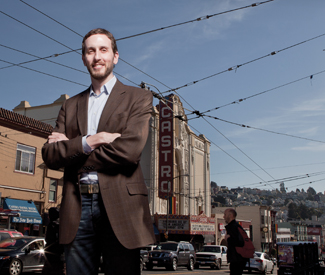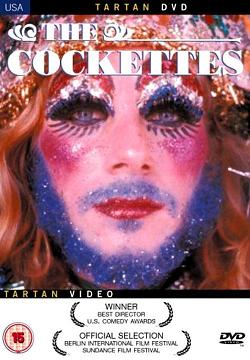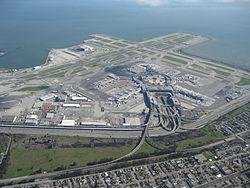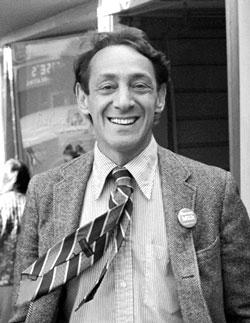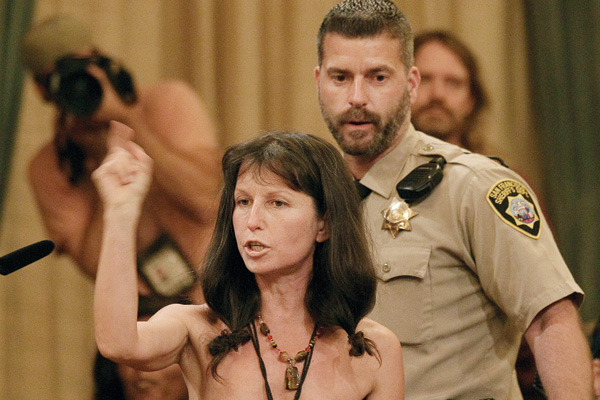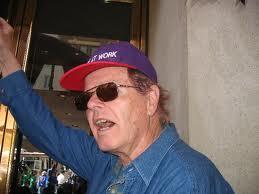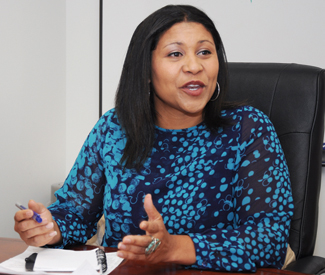steve@sfbg.com
Scott Wiener is a political machine.
I don’t mean that he’s part of a political machine, although he is arguably a member of a few nascent operations in town, from the old-school Democratic Party establishment to the morphing amalgam of groups pushing what he calls a “livability” agenda. I mean that Supervisor Wiener, who represents District 8, is a machine — almost robotic in his tireless, 24/7 engagement with all things political.
In just two years on the board, he’s become one of the most productive legislators in the city, courting controversy and taking on issues others had ducked. He is relentless in his quest to make government run more efficiently. He’s affable, mild-mannered and accessible, often willing to work with opponents — but he has an agenda for the city that he pursues aggressively.
Perhaps more than anyone at City Hall, Wiener embodies the current political zeitgeist in San Francisco, with its emphasis on civility and private-sector job creation. He isn’t the most powerful person in city government, but he’s playing an outsized role in shaping the city’s future — and that will only grow this week as he assumes the chair of the board’s Land Use Committee.
Wiener defies easy labels. Critics who call him an uncaring conservative aren’t quite right, and it’s equally tough to simply accept the “urbanist” and “good liberal Democrat” labels that Wiener applies to himself. And it’s hard to pin Wiener down on what sort of city he envisions, except for one with minimal bureaucracy where the trains and buses run on time.
In his City Hall office, where the walls contain little artwork, just the occasional reminder of past political episodes (like the framed Guardian butt cover from when he banned the nudists in the Castro from putting their bare asses on benches), he was happy to talk to me at length about policy. But he had less to offer on who he thinks this city is for — about who should be able to stay here, and who has to leave. He talks about preserving a safety net — but not about pushing back against gentrification and displacement with any tools up to the task.
In the end, his focus is on making government and the city’s infrastructure work well for those who are able to live in a city that’s become openly hostile to low-income and working-class people. He’s an agent of change — but his change is disturbing to progressives. He’s steadily moving legislation that makes it more difficult to counter trends that are gentrifying and sterilizing the city.
A BIT OF A NERD
Born in Philadelphia and raised mostly in the small, conservative New Jersey town of Turnersville, the young Scott Wiener always felt one step removed from his surroundings. So he poured himself into his studies. “I was always a bit of a nerd. I’ll admit I was voted most studious in high school,” Wiener said.
What social life he had centered around his synagogue in a Christian-dominated community. His parents — dad an optometrist, mom running his practice — were “very partisan Democrats” in a Republican county. Although they weren’t very politically active, Wiener’s earliest political memory is the 1980 presidential election that brought Ronald Reagan to power: “Our house was like a place of mourning.”
Involvement in Democratic Party politics seemed to just flow from his academic life, interning with a member of Congress as a teenager and then helping form a Democratic Club when he attended Duke University, which devoted itself to campaigning against then-Sen. Jesse Helms when Wiener was a sophomore.
Coming out as a gay man at the age of 20 wasn’t terribly traumatic in a family where his cousin and aunt were lesbians. His main concern was whether it might hinder his plan to run for president of his fraternity, the Jewish Alpha Epsilon Pi, but he won that election anyway.
Still, Wiener calls being gay and Jewish the “galvanizing experiences” of his formative years, particularly at a time when AIDS had devastated this new community he was joining, so his political activism focused on LGBT issues as he worked his way through Harvard Law School, choosing to settle in San Francisco in 1997.
Tall and gangly, almost obsessed with Democratic Party politics, his only real hobby or pastime is yoga, which he said “helps me stay sane.” Wiener has always been less fun-loving than many of the gay men around him in the Castro, the neighborhood he represents.
“Dating has not always been my strong suit,” Wiener said. He’s close to family and friends but really hasn’t had any serious romantic relationships to speak of. “Men are challenging.”
So he works, and works, and works. He’s been working the Castro with door-knocking intensity since well before his successful run for supervisor in 2010, during his long tenure on the Democratic County Central Committee and his day job as a deputy city attorney, focused mostly on defending the San Francisco Police Department.
Department heads have learned that he’s always on duty. “I was at Nancy Pelosi’s New Year’s party on Sunday, and I saw [SF Muni head] Ed Reiskin and I started walking up to him because I had like three things to talk to him about, and the look I saw in his eye was the same look that I think I sometimes get in my eye when a particularly aggressive constituent approaches me,” Wiener recalled.
It’s a look that Wiener has had to adopt regularly over the last two years as he’s sponsored a string of the city’s most controversial pieces of legislation.
AGENT OF CHANGE
Right now, Wiener is pushing legislation that would limit people’s opportunities to appeal development projects (dubbed “CEQA reform”) and co-sponsoring legislation that would let owners of tenancy-in-common (TIC) housing units pay a fee to bypass the city’s condo conversion lottery, which limits the removal of apartments from the rental market.
Both changes, two of the most controversial measures of this new legislative session, have been opposed by progressives for decades. And they follow Wiener’s sponsorship of the two most controversial pieces of legislation from the last session: his unsuccessful attempt to remove the exemption of nonprofits from paying the city’s Transit Impact Development Fee and his ban on public nudity, which passed on a 6-5 vote in November, making national headlines.
The two new bills reflect an agenda that’s popular with landlords, property owners, and developers — and opposed by tenants, neighborhood activists, and just about every progressive group in town.
Yet, at the same time, Wiener is supportive of nightlife and an advocate for Muni and bike lanes — softening his image as a downtown conservative and sometimes giving him a chance to divide the progressive community. And last year he cast the crucial eighth vote needed to create the CleanPowerSF public-power program and override a threatened mayoral veto.
“I strongly believe in the capacity of government to make people’s lives better,” Wiener said.
Wiener told me he believes in the social safety net and rent control. He says he has supported every tax measure on the ballot in recent years, he understands that Muni and other vital city infrastructure go deeper in the hole with every new development project the city approves, and he knows that San Francisco is becoming steadily less affordable to those on the bottom half of the economic spectrum.
Yet, even when pressed on the topic at length, he doesn’t have a good answer for how to maintain San Francisco’s long-term socioeconomic diversity. It’s almost as if that’ s not part of his consciousness. Instead, he’s making it easier for capitalism to have its way with San Francisco.
Tom Radulovich, director of Livable City, puts it this way: “One thing he’s really doing is reforms in the process of government. He wants to smooth the way for the transformation of the city.”
While smoothing the way for change is good for those who desire certain changes — whether it be a developer building luxury condos or the San Francisco Bicycle Coalition trying to add more bike lanes — there are often good reasons why change occurs in a slow, methodical way in San Francisco, a city of great wealth and power but also lots of checks and balances on how power gets wielded.
“Process is important in San Francisco,” Radulovich said. “For a lot of people that want to slow things down, they are very process focused, and he’s really messing with that.”
Wiener’s efforts particularly rankle people like Aaron Peskin, who started as a historic preservation activist before leading a prolific agenda (he said he authored 205 ordinances in eight years, far faster than Wiener’s pace) as a supervisor during the board’s modern progressive era.
Peskin — who successfully ran against Wiener for DCCC chair in 2008 and has fought him on historic preservation and other progressive issues since then — doesn’t mince words when describing Wiener’s agenda and key votes as supervisor: “Supervisor Wiener is intent on turning the clock back on San Francisco’s decades-long legacy of cutting edge legislation to protect consumers and the environment.”
Radulovich says the trend is upsetting the city’s balance in unpredictable ways. “The net result is he’s speeding everything up, the good, the bad, and the ugly. He’s taking the brakes off of change,” Radulovich said. “In all of these changes, it’s hard to tell what’s going to happen because these are big, complex systems.”
Wiener sees it differently. His bill to modify the city’s CEQA interpretation would make it harder to file multiple project appeals — and he thinks that’s a good thing: “There are people who want to the option to be oppositional and to just have something in their hip pocket, even if it has no merit.”
Yet activists fighting the measure say it also makes it easier for projects to slide through without proper public or environment scrutiny. For example, the city originally exempted the controversial Beach Chalet artificial turf project in Golden Gate Park from doing an Environmental Impact Report, which eventually found significant impacts to wildlife, drainage, and from bright artificial lights.
There are some who worry that the Land Use Committee will be more friendly to market-rate developers under Wiener’s leadership.
“I’m really concerned with the direction the city is going on land-use issues, particularly with him now chairing the Land Use Committee,” Tom Temprano, president of the Harvey Milk Club, told me. “It’s about the future of the city and who it’s being built for.”
Peter Cohen of the Council of Community Housing Organizations notes that Wiener’s focus during “affordable housing” discussions has been on middle class homeowners: “I’m interested to see if he pushes that narrative, that we’re not doing enough for the middle class, because it is a bit of a zero sum game with housing and land use.”
Radulovich said Wiener may not be critical enough of projects that seek more than their zoning entitles them to, a growing problem in San Francisco that has set precedents for more intensive development and made it difficult to analyze cumulative impacts of the decisions: “Having a Land Use chair that going to move those things along will allow planning by exception.”
Between watching out for Wiener’s legislation and tracking the development projects that seem to keep springing out of nowhere, progressive activists are busy.
“He’s very busy. He’s amazingly prolific legislatively. I can’t keep up with him and I don’t know what his agenda is,” said Sue Vaughan, who works with the Sierra Club and sits on the San Francisco Municipal Transportation Agency’s Citizens Advisory Council. “It just seems like everything he focuses on disempowers the voters and empowers the [wealthiest] 1 percent.”
POLITICS AND PERSONALITY
Even his critics have positive things to say about Wiener. “He’s a nice guy, and I have to give him credit for going out of his way to work with us,” Temprano said, praising Wiener’s advocacy on queer, nightlife, and small business issues and saying, “He’s a really good legislator.”
“That said, we have a fundamentally different approach to politics,” Temprano said. “A huge bone of contention is his handling of public space, including the nudity ban and removing the public benches” in the Castro.
Temprano criticizes Wiener for allowing social services to be slashed while local corporations get tax breaks and focusing more on the convenience of those middle class and above than the needs of those on the bottom, often by presenting “false choices,” as Wiener did in opposing free Muni for youth by saying that increasing efficiency in the system was more important.
“The folks who have more basic needs are being pushed out of this city,” Temprano said. “There are just so many needs right now, and so many of them come down to funding for social services and other things…We should be starting to re-fund programs that have been slashed in recent years.”
Wiener has served on the Budget Committee throughout his tenure on the board, presiding over the rollback of city services and maintaining of historically low levels of business taxation.
In fact, Temprano said Wiener’s engaging personal style and points of agreement with progressives make Wiener more effective in sometimes pushing issues that are hostile to progressive values. “It’s occasionally difficult to play hardball on some of these other issues,” Temprano said, noting that Wiener doesn’t seem to have a problem switching gears and playing hardball in undermining progressive reforms, something that requires those of the left to be ever-vigilant and take advantage of Wiener’s open-door policies. “We need to be incredibly vocal and incredibly organized.”
Adds Radulovich: “There’s something about him that’s refreshing. He’s different than the moderates of the past…He’s a moderate, but he’s the new generation of moderate.”
In fact, Radulovich said that progressives could learn lessons from Wiener in terms of broadening their base and reaching across the aisle on certain issues that needn’t be as polarizing as they often are in San Francisco, even around such emotional issues as growth and development.
“If you do anything differently, you get kicked out of the progressive camp,” Radulovich said, half-jokingly adding, “If you had an original idea since 1978, you’re suspect.”
In fact, Radulovich compared Wiener to a former supervisor who is his political opposite: “Scott is effectively driving the conversation in proposing things. Chris Daly used to do that.”
Peskin said that Wiener’s legislative success so far has less to do with his skills and strength than it does with the weakness of the progressive movement over the last two years.
“He’s only one supervisor, and it’s just that his colleagues need to stand up and start questioning his legislation. He backs down when people rise to the occasion,” Peskin said, noting that progressive activists may have become complacent after a decade when progressives had a majority at the board. “It’s a big wake-up call for activists and everyday folks in San Francisco who have not had to go down to City Hall to stop bad things from happening in 10 years.”
Peskin doesn’t buy the arguments that Wiener’s politics are nuanced and hard to pin down, saying he predictably supports those with money and power and undermines the average citizen in just about every vote. “He’s fundamentally a very ideologically conservative person,” Peskin said. “He’s radical in his conservatism.”
RENTERS PLIGHT
Wiener is now in the middle of a fight that pits the progressives and the two-thirds of city residents who rent their housing against the homeowners and real estate interests that have long sought to make it easier to turn housing units into condos.
The bill that created this controversy, which Wiener co-sponsored with conservative Sup. Mark Farrell, is a one-time amnesty that would allow some 2,500 TIC units to bypass the city’s condo lottery (limited to 200 conversions a year) and to become condos. Wiener says it’s aimed at helping TIC owners stuck in limbo with mortgages they can’t refinance.
“In my view, we need housing stability for everyone, and that includes tenants and it includes homeowners,” Wiener said. “We’ve seen in the foreclosure crisis that tenants aren’t the only ones who can have unstable housing. And right now, we have many TIC owners who bought…thinking that it was going to take five-seven years to win the lottery because that’s how it used to be, but now it’s 15 or 20 years.”
That, of course, is because so many former rental units were turned into TICs that the conversion list keeps growing. When TICs become condos, the property becomes worth more and easier to refinance.
“The financing for TICs is worse than it’s ever been,” Wiener said, noting that many TIC owners are underwater. “So the people in the TICs are really hurting. And if they lose their TICs, it’s not like they’re going away, they’re going to compete for rental units.”
But San Francisco Tenants Union head Ted Gullicksen said the courts have steadily eroded San Francisco’s ability to safeguard rent control and prevent apartments from being turned into TICs and condos. “If we make it easy for them to become TICs, we will have lost the only weak defense we have against conversion,” he said.
Gullicksen said the one-time offer will just lead to more TICs — and more evictions. “They’re saying if the line gets too long, don’t worry, we’ll deal with it,” he explained.
Gullicksen also disputes the argument that financing for TIC is difficult. The market slowed down after the fiscal crisis of 2008, “but in the past 8-12 months, they have begun to skyrocket again,” he said.
Gullicksen acknowledged that Wiener has a history of supporting pro-tenant legislation, particularly during his time on the DCCC when tenant groups were at war with Wiener’s predecessor, Bevan Dufty, and then-Mayor Gavin Newsom. But he said that Wiener changed after progressives took over the DCCC and he prepared to run for supervisor in a district that has gentrified, largely because of apartments being converted to TICs and condos.
“He made the decision that he was not going to be with progressives and to ally himself with the conservatives, moderates, and real estate people,” Gullicksen said.
Wiener disputes the characterization, saying that he strongly supports rent control and tenants, even though he also supports TICs and other home ownership opportunities.
COURTING CONTROVERSY
A Guardian analysis of legislation from the past two years shows Sup. David Chiu edging out Wiener in total legislative initiatives, 153-119, with the rest of their colleagues in double digits. But while Chiu has authored more ordinances and charter amendments (49) than Wiener (33), it is Wiener that has taken on the toughest fights and found himself at the center of big controversies far more often.
“I enjoy policy and I like legislating. We have a limited time here at City Hall as members of the Board of Supervisors, and I think you have to take the bull by the horns and pursue the policies that you think are important to the city, so I started doing that pretty quickly after taking office,” Wiener said. “I also think you have to be willing to take risks, so I’ve been willing to take on legislation that maybe others wouldn’t touch, or that others thought was too hard.”
Radulovich noted: “He’s not a cautious legislator, but he is a careful legislator. He’s not afraid of starting a fight, particularly with progressives. A lot of progressives are like, ‘If Scott Wiener is for it then it must be bad.'”
Vaughan is one of those activists who said she’s eventually learned not to trust Wiener or his legislation: “We’ve been galvanized and we feel like we have to watch what he’s doing very carefully.”
Like many progressive activists, Radulovich said he likes Wiener and respects his political skills, but he doesn’t see Wiener as sharing his political values: “His agenda is much more pro-business than mine, more about promoting laissez faire capitalism.”
Rafael Mandelman, who was elected to the City College of San Francisco board last year after losing to Wiener in the D8 race two years earlier, said he has been impressed by his former adversary.
“It’s unquestionable that he’s super hard-working, super dedicated, probably the most effective member on the Board of Supervisors,” Mandelman said. “He takes on controversial issues, and in some ways he courts controversy, but he generally leave people with good feelings.”
Mandelman differs from Wiener politically on issues like CEQA reform and historic preservation standards. “On the other hand, he has taken some principled stands against some big players,” Mandelman said, citing Wiener’s battles against the Academy of Art on student housing and the Hospital Council on TIDF.
Wiener rejects the accusation that he’s not engaged enough with the community or his critics. “I think that’s made up. And really, it’s a different way of saying, ‘I don’t agree with your legislation,’ therefore I’m going to say you didn’t take enough input ahead of time,” Wiener said. “I’ve had legislation where I had more than a year’s worth of meetings with different stakeholders before I introduced it.”
“Even on the nudity legislation, I had hundreds and hundreds and hundreds of communications with constituents before introducing it, between Facebook, email, on the street, in the cafes, talking with people on both sides. I know some folks say I should have had a town hall meeting on it, but that’s just one way of communicating with people,” Wiener said. “I’m communicating with constituents seven days a week, in many different ways. So I think that criticism is unfounded.”
TRANSIT AND NIGHTLIFE
Part of Wiener’s power comes from having carved out unique niches for himself, including in two realms not traditionally occupied by fiscal conservatives: public transit and nightlife issues.
“Scott Wiener has been a tireless champion of nightlife issues since the beginning. One of his very first actions in office was to call for an economic impact study to better understand the entertainment industry’s contribution to the City’s economy,” said Guy Carson, the owner of Cafe du Nord and a founding board member of the California Music and Culture Association.
San Francisco Bicycle Coalition Executive Director Leah Shahum gives Wiener lots of unqualified credit for his leadership on transportation issues. “We’ve been really impressed with what a strong grasp he has of the city’s transportation needs, and he’s been willing to push in certain areas behind the scenes,” she said, contrasting the grandstanding that most politicians do on transit issues with Wiener’s more substantive position. “He comes in with a lot more policy understanding, and it’s clear he really rides Muni regularly.”
But even on transportation issues, some progressives fault Wiener. “We need to be really concerned about transit equity in this city, and that’s something I’d like to see more from him on,” Temprano said, calling on Wiener to show as much concerns for the needs of low-income communities that truly rely on Muni as he does with the needs of better-off Castro residents. “I’m always fighting with the MTA because they’re not doing a good enough job on Muni,” Wiener said. In fact, Wiener said he’s in contact with that supposedly independent agency almost every day, pushing them to make changes he wants: “To its credit, MTA does care about what the mayor and the supervisors think, and I give them a lot of credit for that because they could take a more blow-off kind of attitude with me, and I haven’t seen that, at least in my interactions with them.”
Wiener said his relationship with MTA head Reiskin is “very positive. I mean, I push him, but we have the kind of relationship where I can be very frank and tell him when I think he’s wrong, and he can be very frank and tell me when he thinks I’m wrong.” Reiskin agrees that his relationship with Wiener is a good one, because of Wiener’s hectoring as much as in spite of it. “My relationship with him is very good. He’s someone who really cares about the transportation system, particularly Muni, and he understands the importance of Muni to the city,” Reiskin said, praising Wiener for his willingness to get personally involved in the struggle. “He’s extended some political capital for it.”
Yet on the TIDF fight, the capital Wiener extended split the progressive movement and burnished his arguments that he’s independent from downtown, so the net result of that losing fight only served to strengthen Wiener politically. “There were no conversations on the front end, I can tell you that. It was sprung on us,” said Cohen, whose CCHO ended up partnering with the business community against transportation activists to defeat the measure. “It did not have to become as adversarial as it was and that was really disheartening. It’s hard to think that it wasn’t intentional.” Reiskin also said that issue was mishandled by his agency. “We failed in that process,” he said. “The fact that we’re pitting improving transportation against social services is not good.”
Yet both Wiener and Shahum cast it as a fight worth having. Wiener said they discussed dropping it when it was clear the votes weren’t there: “My gut was already telling me let’s do the vote, and she said, ‘You know, people need to say where they are on this.’ So we agreed to move it forward.”
And that was a vote he cited when I questioned him about his pro-business agenda. “You always have to be willing to disagree with your allies,” Wiener said. “So people say, ‘You always do what the Chamber of Commerce says,’ but that’s not true. I think I was number five on their scorecard this year because I supported CCA, I supported classifying banks as formula retail, and they scored on the TIDF.”
But Wiener denies there was any political calculation on the TIDF vote, and he cast that vote as a lesson in political organizing. “We have not been organized enough in term of building political power for pro-transit policies, whether it’s pedestrian safety or public transportation. We know that we’ve systematically underfunded Muni, we know that Muni does not do well in funding battles, it doesn’t have effective lobbying for it,” Wiener said.
“We had an all-star cast of public transit advocates up against the Chamber and it was a mismatch, so we need to build up much more institutional capacity for transit advocacy. That’s what we’re learning.”

